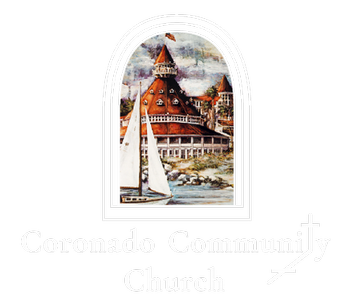Matthew 5:13-20
A Sermon by Pastor Eric Smith
Published On: February 5, 2023
A Sermon by Pastor Eric Smith
Published On: February 5, 2023
Last week we began a three part sermon series called Blessed Life. The first message was about The Beatitudes – which convey Jesus’ teaching that everyone is in. Everyone is God’s blessed child.
Today we look at the next section.
Jesus spoke about three topics. In a broad sense, all three of them are metaphors for spiritual wisdom.
Let’s go to the first metaphor of the passage…
13You are the salt of the earth; but if salt has lost its taste, how can its saltiness be restored? It is no longer good for anything, but is thrown out and trampled under foot.
Until just a hundred years ago, salt was not around in abundance. It was valuable. When Jesus spoke about salt, possessing it or not possessing it represented a huge difference in one’s quality of life.
Salt flavors food, it is mixed with other spices, it preserves food, it was used then to prepare bodies for burial. Today we use the term salty to talk about someone who is irritated, but back then the only people who were salty were dead.
Nowadays, salt is inexpensive and plentiful. We have varieties of salt: we have table salt, kosher salt, pickling salt, Himalayan pink salt, Black salt, Celtic grey salt, flake salt, you can obtain samplers of sea salts, and the list goes on. In Jesus’ day this range of choice did not exist.
When he said you are the salt of the earth, his said that you are of great value. It’s a continuing theme and he said it over and over. Then he went on about salt that has lost its saltiness – about people who moved out of connection with God – which we don’t want to do.
Then he talked about light…
14You are the light of the world. A city built on a hill cannot be hid. 16In the same way, let your light shine before others, so that they may see your good works and give glory to your Father in heaven.
Ernie Pyle was a World War II correspondent. In the dark days of the war he wrote to a friend, “If you have any light, shine it in my direction. God knows that I have run out of light.”
Light represents vision… the ability to see what is with clarity. Nothing is hidden.
It also represents the spirit of a person. We’ll refer to someone as a bright light.
Periodically in our worship we use an Act of Praise written by Marianne Williamson.
It is my light, not my darkness, that most frightens me.
As I let my own light shine,
I unconsciously give other people permission to do the same.
Nietzsches’ criticism of faith, was that, he thought (Jesus) disciples should look more redeemed.
Contrast that with John Ruskin… a famous personality in England in the Victorian era. One evening, while watching a lamplighter walk down the street lighting the streetlamps, Ruskin said, “Now that is what I mean by being a person of faith. You ought to be able to see where such a person has been by the lights that he (or she) leaves burning behind…”
The third metaphor concerns the Law.
17“Do not think that I have come to abolish the law or the prophets; I have come not to abolish but to fulfill. 18For truly I tell you, until heaven and earth pass away, not one letter, not one stroke of a letter, will pass from the law until all is accomplished.
The Law and the Torah are the same thing. Torah can specifically mean the first five books of the Bible – Genesis, Exodus, Leviticus, Numbers, and Deuteronomy. Or it can mean the Torah that is written and/or the Torah that is spoken. It is also called the Law of Moses. Its broadest meaning is the totality of Jewish teaching and practice. Pick what you like.
Let’s think about this.
Jesus was a Jew – no one took the tradition of his faith more seriously – he wasn’t trying to get rid of it – he wasn’t trying to change it. He expected his followers to live in the tradition of Judaism – following Biblical Law. But how did that work?
Rather delving into, what would be for us, the esoteric depths of Jewish history and tradition, we’ll look at this issue in our own day.
Let’s talk about the Word of God. For us it is like Jews talking about Torah. The Word of God has a complexity of meaning much like the Law does for Jews.
When I say the Word of God… what do you think of?
- Some of us will think of the Bible… the Bible is the Word of God. Some groups use the titles Word of God and Bible
- Some of us hear Word of God and think of Jesus – the Gospel of John starts in the beginning was the Word and the Word was God. He was in the beginning with God. Who was? Jesus… Jesus is the Word of God.
- Some of us think of a passage where the Prophet Isaiah spoke on God’s behalf (Isaiah 51). He said… for as the rain and snow come down from heaven and do not return there until they have watered the earth… so shall my word be which goes forth from my mouth – it shall not return to me … without accomplishing that which I purpose. God speaks the word, and things happen… In the Book of Genesis God spoke and all of Creation came to be.
I could go on, but as you can see, there are several meanings for the concept of God’s Word. They range from (on the one hand) a very literal idea that the Bible is the Word of God… period. You can’t add to it – you can’t take away from it – and it is perfect as it exists because God told the authors what to write. That’s one end of the spectrum of meaning when someone speaks of the Word of God.
At the other end of this spectrum is the idea that God’s Word is what animates all of life. It is Spirit. In this view, the Bible is still referred to as God’s Word … (testimony of writers through the ages about what God has said and done). But so much more! In this concept God’s Word can be spoken through any thing, any event, or any person, anytime. God is not bound by limiting ideas of how God can or cannot speak.
So our challenge is knowing which of these meanings to embrace when the range of possibility is so broad.
If someone is a literalist there are problems… consider this Law from Leviticus ( 11:7-8)…
And the pig … is unclean to you. You shall not eat any of their flesh, and you shall not touch their carcasses; they are unclean to you.
Are we to understand that literally? No more bacon! What about Carnitas?
The Word of God also says:
- No tattoos … no eating shrimp … no same sex relationships – Leviticus
- No Jewelry or braided hair. First Peter
- Women shall not wear men’s clothing. Deuteronomy
- Men have to be circumcised (Genesis)
- Women are not to speak in the church. I Corinthians
There are many more – but you get the idea.
People who say they take the Word of God at its literal meaning almost never do.
- One way of looking at this is that people pick and choose what we like and what we don’t like.
- Another way of looking at this is that culture changes and so does religious understanding. We ignore some commands; we value some commands more than others. It has changed over time, and it will continue to change.
So back to Jesus – What was Jesus attitude? … where on the continuum of obeying the Laws of God did Jesus land?
He valued the Law… but he didn’t hesitate to break it.
- He had the disciples out picking grain on the Sabbath. (against the Law)
- He healed someone on the Sabbath. (against the Law)
- He spoke to a woman in public… (against the law).
He valued the law of God and he ignored certain aspects – at the same time.
Because all of the Law was not created equal. There are higher values – Jesus named them… Love God with all your heart soul mind and strength and love your neighbor as yourself. Those are the top two laws. They supersede everything else.
Pause for a moment… Here’s how we can look at how Jesus approached it.
Buddhism has a teaching about life that is called, the Middle Way. It is as it sounds… not one extreme… not the other… the middle way.
Buddhist teacher Jack Kornfield describes it like this…
… The middle way is the ability to live in the reality of the present… when we discover the middle path we neither remove ourselves from the world nor get lost in it. We learn to embrace tension, paradox, change. In the middle we discover that the world is workable. It’s not our task to create an ideal. It’s our task … to learn from the world as it is.
The middle way is Jesus’ way. It is how he approached the Law… and life. He taught, discern the moment and the movement of God in it… and act accordingly.
“Do not think that I have come to abolish the law or the prophets; I have come not to abolish but to fulfill.
Gotta’ finish with a story…
While I was thinking about Jesus teaching on light I remembered the summer that I decided ministry would be my life. Long time ago.
I was part of a traveling music group of 35 college age kids. Continental Singers it was called… in the style of Up With People. We performed a wide range of music with a gospel message.
On this occasion we were in Japan, performing at a university in Tokyo. There was an audience of 10,000. The featured speaker was Olympic ice skater Janet Lynn, who talked about God’s light in her life.
Then we sang. I remember it clearly because I had a solo from a gospel piece Ella Fitzgerald had done … and it was the biggest crowd I had ever been in front of. I lived with the song all summer… and ever since …
Do not wait until some deed of greatness you may do
Do not wait to shed your light afar
To the many duties ever near you now be true
Brighten the corner where you are
Brighten the corner where you are!
Brighten the corner where you are!
Someone far from harbor you may guide across the bar;
Brighten the corner where you are!
You are the light of the World.
You are the salt of the earth.
You are blessed with life.
Go the middle way and walk with Jesus.




